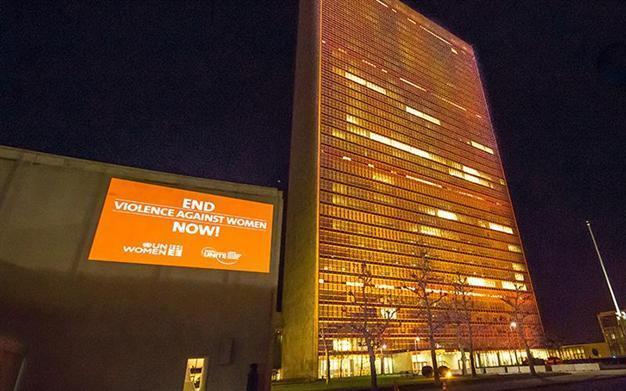A third of women globally victims of domestic violence: WHO
GENEVA - Agence France-Presse

The UN Headquarters is lit orange to mark the International Day to End Domestic Violence on Nov. 25, as part of a two week-long campaign.
Current efforts to prevent domestic violence are insufficient as a third of women worldwide are physically abused, according to a series of studies by the World Health Organization published on Nov. 21.Between 100 to 140 million women are victims of genital mutilation and around 70 million girls are married before 18, often against their will.
And some seven percent of women risk being raped in their lifetimes, the study said.
The violence, exacerbated during conflicts and humanitarian crises, have dramatic consequences on the physical and mental health of the victims.
"No magic wand will eliminate violence against women and girls. But evidence tells us that changes in attitudes and behavior are possible, and can be achieved within less than a generation," said Charlotte Watts, professor at the London School of Hygiene and Tropical Medicine and co-author.
The study says even in places with tough, forward-looking laws many women are still the victims of discrimination, violence and lack adequate access to health and legal services.
"Early identification of women and children subjected to violence and a supportive and effective response can improve women's lives and well-being, and help them to access vital services," said Claudia Garcia-Moreno, a WHO physician.
The study's authors said a real dent can only be made in the violence against women if governments put more resources into the fight and recognize how it serves as a brake on economic growth.
World leaders should also change discriminatory laws and institutions that encourage inequality and thus set the stage for more violence.
Finally, the authors wrote, governments need to encourage research and rapidly put into place measures that have been shown to work.
"We now have some promising findings to show what works to prevent violence. Our upcoming challenge is to expand this evidence on prevention and support responses to many more settings and forms of violence," said Cathy Zimmerman, a doctor at the London School of Hygiene and Tropical Medicine.
















